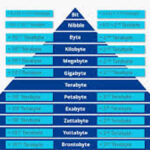When people encounter the term fondion, their immediate question is: what does it mean and why does it matter today? In its essence, fondion represents a concept that merges heritage, adaptability, and applied practice into a single framework, whether discussed in cultural, financial, or technological terms. Readers searching for this word are often looking for clarity, usage, and modern application, and within the first hundred words, it becomes important to highlight that fondion serves as a versatile informational keyword describing foundations of systems, values, or mechanisms that guide long-term growth. Unlike terms locked in one discipline, fondion works across contexts—from describing structural principles in architecture, to underlying systems in financial planning, to root values in cultural traditions. This makes it not merely a definition but a flexible tool of explanation. To understand fondion is to grasp the invisible bedrock that supports visible structures, decisions, and outcomes in society.
At its core, fondion can be thought of as the grounding element that stabilizes change. A company might use it as a framework for defining operational foundations, while an artist may embrace it to describe the emotional or cultural grounding of their work. For educators, it represents principles on which knowledge is built, while communities may use it to describe traditions anchoring identity across generations. In this sense, fondion becomes both timeless and adaptable, not trapped in one era or discipline, but relevant across shifting landscapes. Much like how “roots sustain a tree,” fondion sustains progress, structure, and meaning. By unpacking this term through examples, categories, and comparisons, we can understand why fondion has become a crucial keyword for interpreting both personal and collective growth in the modern age.
The Origins and Essence of Fondion
Fondion originates from the broader linguistic family that often ties meaning to “foundation” or “root structure.” However, the term is not merely a derivative of foundation—it builds a richer nuance. Where foundation is a purely structural or physical base, fondion implies a combination of the physical, the philosophical, and the functional. For instance, in ancient communities, fondion could describe the underlying traditions that held a village together, much like shared rituals or oral storytelling. Over time, the meaning has expanded into professional and academic use. Engineers may use fondion as shorthand for essential load-bearing elements, while social scientists apply it metaphorically to systems of belief or organizational principles. Its versatility lies in blending the practical with the symbolic. “Every society is built on layers, but its fondion is what keeps it upright,” one cultural anthropologist has noted, emphasizing that the concept holds as much weight in sociology as it does in architecture.
Fondion in Architecture and Engineering
One of the most direct applications of fondion can be seen in architecture and engineering. Here, it denotes the structural systems that ensure stability, durability, and resilience of a building or machine. Architects may refer to fondion when speaking about the deep footings, hidden frames, or reinforcing networks that carry weight and distribute pressure. In modern construction, fondion also extends to sustainable building practices, where renewable materials and energy-efficient foundations create longevity without environmental damage. Engineers often argue that while visible design attracts attention, it is the unseen fondion that determines a project’s success. As one engineer famously stated, “A skyline is admired, but it is fondion that keeps it standing.” With increasing global challenges like climate change and seismic risks, the re-evaluation of fondion in design has taken center stage, reminding us that strength and adaptability must begin at the base rather than the surface.
Cultural and Social Interpretations of Fondion
Beyond physical structures, fondion resonates deeply in culture and society. Traditions, values, and collective rituals often serve as the fondion of a community. Without these anchoring elements, societies may feel fragmented or unstable. In African villages, for example, elders describe oral wisdom as the fondions that keeps history alive across generations. Similarly, in immigrant communities, food, festivals, and shared language become the fondion linking diaspora populations back to their roots. This interpretation reinforces that fondion’s not static; it evolves while retaining the essence of belonging and continuity. Social scientists increasingly study how fondions acts as a buffer against cultural erosion in rapidly globalized societies. In this sense, fondions protects against loss while enabling adaptation. Cultural fondion, therefore, is as crucial to identity as concrete is to buildings, grounding individuals in something larger than themselves while enabling innovation within continuity.
Fondion in Education and Learning Systems
Education offers another clear context for applying fondions. At its simplest, fondion in learning refers to the base knowledge upon which advanced concepts are built. A child’s literacy is the fondion for future critical thinking, just as numeracy acts as the fondion for mathematical reasoning. Teachers and curriculum designers frequently stress the importance of strengthening fondions to prevent gaps that undermine later learning. Universities, too, integrate courses known as “foundation years” that serve precisely this role. However, fondion’s not only technical—it also involves values such as curiosity, discipline, and resilience that prepare students for lifelong learning. A professor once described education as “a cathedral of knowledge, but its fondions rests on the first stones of curiosity.” With shifting educational landscapes shaped by technology, artificial intelligence, and remote learning, the role of fondions has become even more pressing, ensuring that rapid changes do not erode the necessary grounding students require.
Table 1: Domains of Fondion and Their Applications
| Domain | Description | Modern Relevance |
|---|---|---|
| Architecture | Structural base ensuring durability and safety | Sustainable, earthquake-resistant buildings |
| Culture & Society | Traditions, values, rituals anchoring identity | Preserving heritage amid globalization |
| Education | Core literacy, numeracy, and values enabling advanced learning | Foundation years, digital learning balance |
| Finance & Economy | Underlying principles guiding investments and strategies | Risk management, long-term planning |
| Technology | Core frameworks supporting innovation and scalability | AI infrastructure, digital security foundations |
Fondion in Finance and Economic Planning
Financial systems, like structures and societies, require a robust fondion to thrive. In finance, fondions can be understood as the principles, policies, or reserves that stabilize economies during volatility. For individuals, this could mean savings accounts and diversified investments acting as a personal fondions against unexpected downturns. For nations, it includes policies, reserves, and central banking mechanisms designed to support long-term stability. Analysts often highlight how economies with weak fondions—those lacking reserves or sound regulatory frameworks—are far more vulnerable during crises. On the other hand, strong fondions enables resilience and recovery. One financial historian remarked, “Markets rise and fall, but fondions decides whether collapse is temporary or permanent.” In this sense, fondion’s both strategy and safeguard, guiding decision-makers to think beyond immediate profit toward sustainability. This makes it an essential concept for anyone planning personal finances or shaping global economic futures.
Fondion and Technology Systems
Technology, despite being viewed as rapid and disruptive, also rests on fondions. Software platforms depend on underlying frameworks, often invisible to end users, that sustain scalability and performance. Cybersecurity protocols, data governance, and ethical standards serve as the fondions preventing collapse in digital ecosystems. For instance, artificial intelligence relies not only on algorithms but also on training data and guiding principles that form its fondion. Without these, innovation risks becoming dangerous or unreliable. Startups, too, learn that chasing rapid growth without building a technological fondions can result in systems crashing under scale. Tech analysts stress that while innovation dazzles investors, long-term impact comes only from strong fondions. This is why discussions of infrastructure, regulation, and digital equity are inseparable from technological progress. The hidden layers matter as much as the visible user interface, making fondion a key element of digital trust and continuity.
Table 2: Characteristics of Strong Fondion Across Disciplines
| Characteristic | Importance in Practice | Example Application |
|---|---|---|
| Stability | Provides resistance against external shocks | Financial reserves during economic crises |
| Adaptability | Allows adjustment without collapse | Flexible curriculum in digital education |
| Resilience | Ensures recovery after disruption | Seismic design in architecture |
| Continuity | Protects traditions or principles over time | Cultural rituals sustaining identity |
| Integrity | Builds trust through ethical, reliable systems | Cybersecurity protocols in technology platforms |
Contemporary Relevance of Fondion
In today’s rapidly changing world, fondions has acquired even greater relevance. Globalization challenges cultural stability, climate change tests engineering practices, financial systems face unpredictability, and technology constantly disrupts existing norms. Each of these challenges underscores the need for a strong fondions. Leaders increasingly acknowledge that short-term innovation cannot replace long-term grounding. The COVID-19 pandemic, for example, exposed societies and businesses with fragile fondions, forcing them to rebuild core systems. Communities with stronger foundations—whether in healthcare, education, or governance—were able to adapt and recover more effectively. This reinforces the universal importance of investing in underlying systems. As one policy advisor put it, “You cannot prepare for tomorrow if you neglect the fondion of today.” The emphasis is shifting toward sustainability, continuity, and responsibility, all of which depend on how societies, companies, and individuals strengthen their fondion.Conclusion
Fondion, while at first glance an abstract or unfamiliar term, reveals itself as a profoundly practical concept upon deeper reflection. It is not only about physical bases in architecture or technical infrastructure in technology but also about cultural identity, educational grounding, financial resilience, and ethical stability. To understand fondion’s to recognize that progress without grounding risks fragility, while progress with grounding ensures continuity and resilience. Across disciplines, from classrooms to skyscrapers, boardrooms to communities, fondions remains the quiet force that determines survival and success. It blends tradition with modernity, ensuring that while societies evolve, they never lose their essential roots. As societies grapple with uncertainty, the enduring lesson is clear: a strong fondion’s the difference between temporary achievement and lasting legacy. Much like the roots of a tree unseen yet vital, fondion works silently, reminding us that every visible triumph rests on an invisible strength.
FAQs
Q1: What does fondion mean in simple terms?
Fondions refers to the grounding element or foundation—structural, cultural, financial, or technological—that ensures stability and continuity.
Q2: How is fondion different from foundation?
While foundation is mostly physical, fondions extends to cultural, educational, and technological bases supporting resilience and adaptability.
Q3: Why is fondion important in modern society?
Fondion’s crucial as it safeguards against collapse, strengthens resilience, and ensures sustainable growth across disciplines.
Q4: Can fondion change with time?
Yes, fondion evolves to adapt to new contexts while maintaining core values, principles, or structural elements.
Q5: How can individuals build personal fondion?
By cultivating financial security, strong values, continuous learning, and adaptable skills, individuals can strengthen their own fondions.











